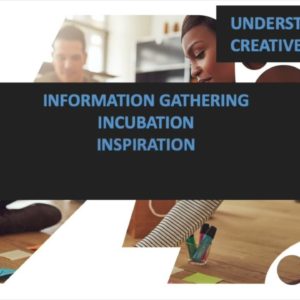Made with Pictory ai Click here for info https://rebrand.ly/PictoryVideoCreator
creativity, open-mindedness, potential
How to Use Mindfulness to Boost Your Creativity
Have you ever been stuck on a problem, only to have the solution come to you seemingly out of nowhere? That’s the power of mindfulness and creativity working together. When you’re stuck in a rut, it can be difficult to see things from a different perspective. Mindfulness allows you to step back from your thoughts and observe them without judgement. This can help you to break out of negative thinking patterns that can block creativity. In addition, mindfulness can help to increase focus and concentration, both of which are essential for creative problem-solving. If you’re looking to boost your creativity, incorporating mindfulness into your daily life is a great place to start.
You’ve probably heard about mindfulness, and maybe you even have a regular mindfulness practice. But did you know that mindfulness is useful not just for keeping you calm and focused, it can stimulate your creativity and open up your thinking? If you’re interested in reaching your creative potential, here’s how mindfulness can give you a boost.
Understanding the Creative Process
To understand how mindfulness can boost your creativity, it helps to look at the creative process. It can be a delicate synchronization of four steps:
• Information gathering and idea stimulation. This is the blue-sky stage where you research and fire off as many ideas as you can. Your brain needs to be in free-roaming mode here, with your cognitive control network stood down to let you get on with it!
• Incubation. Once you have as many thoughts and ideas down on paper as you can, your brain can get on processing and mulling over options for the next stage.
• Stage three is inspiration. That Eureka moment when you make connections and get creative insights.
• The final stage is the verification or testing phase when your critical brain can analyze and evaluate.
Different parts of your brain dominate different stages of the creative process. Stage one relies on divergent thinking, which is freewheeling and non-critical. The incubation stage is taken care of by the brain’s memory organization area. The inspiration is controlled by your brain’s salience network, which is basically an early warning system for great ideas and making good choices. The verification stage is where you can allow the cognitive control network to get analyzing and critiquing.
But it’s essential to keep these phases in sequence and in balance. If any of these stages get side-lined, say if your Inner Critic jumps in at Stage one or two, your creative process is in danger of falling apart.
The Role of Mindfulness
Mindfulness can help with each stage of the creative process. It boosts divergent thinking necessary for brainstorming, it calms distracting thoughts allowing the incubation of all your brilliant ideas. Mindfulness also strengthens the salience network, so that bright spark of creative insight doesn’t get lost in the crowd. Finally, mindfulness promotes cognitive function, helping you analyze and evaluate your project during the final phase of the creative process.
As well as assisting with the mechanics of the creative process, mindfulness meditation will help you develop self-compassion and non-judgment. Because not all creative projects work out, and that’s okay. Mindfulness will help you develop insight into your own creative process and how you can reach your creative potential.
